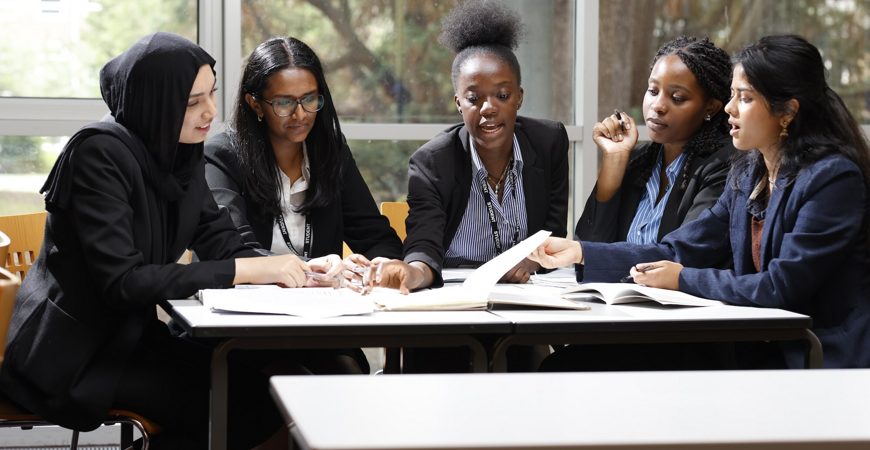- Home
- Key Information
- Curriculum
- Subject Information
- Geography
Geography

Geography Creates A Landscape of Opportunity
Nature of Subject
Geography is the study of places and the relationships between people and their environments. Geographers explore both the physical properties of Earth’s surface and the human societies spread across it. They also examine how human culture interacts with the natural environment and the way that locations and places can have an impact on people. Geography seeks to understand where things are found, why they are there, and how they develop and change over time.
Intent
At Coloma, the schemes of work have been written whereby the subject inspires pupils' curiosity and fascination about the world. Teaching and learning equips our pupils with knowledge about diverse places, people, resources and natural and human environments, together with a deep understanding of the Earth’s key physical and human processes. As pupils progress, their growing knowledge about the world should help them to deepen their understanding of the interaction between physical and human processes, and of the formation and use of landscapes and environments. Geographical knowledge, understanding and skills provide the frameworks and approaches that explain how the Earth’s features at different scales are shaped, interconnected and change over time.
Design
Our programme of study ensures that all students develop a deep understanding of fundamental concepts, achieve fluency in Geography, and are able to recall and apply knowledge rapidly and accurately. Students develop contextual knowledge of the location of globally significant places – both terrestrial and marine – including their defining physical and human characteristics and how these provide a geographical context for understanding the actions of processes. Pupils gain an understanding of the processes that give rise to key physical and human geographical features of the world, how these are interdependent and how they bring about spatial variation and change over time. Pupils become competent in the geographical skills needed to: collect, analyse and communicate with a range of data gathered through experiences of fieldwork that deepen their understanding of geographical processes. Furthermore, our programme of study is structured carefully so learners can become proficient in interpreting a range of sources of geographical information, including maps, diagrams, globes, aerial photographs and Geographical Information Systems (GIS), and can communicate geographical information in a variety of ways, including through maps, numerical and quantitative skills, as well as writing at length.
Delivery
The delivery of the curriculum connects with students’ minds, eliciting what students already know and understand about the geography, checking and correcting misunderstandings, finding out students’ opinions and feelings, and supporting students’ learning and progress.
Within a lesson, the teacher will give students time to explore new geographical information and relate it to what they already know. The teacher will allow students to discuss ideas and geographical data with each other, and will ask for extended writing so that students need to sort out geographical information and ideas and make links between them.
The geography in a lesson will be represented by at least one of the following, and it may include all of these:
- Geographical data. This includes maps, visual data of all kinds, statistics, graphs, text, etc. It can be in textbooks, on resource sheets, through PowerPoint presentations or on the Internet. Students need to use geographical data to help them understand the complex world in which we live.
- Geographical ideas. These may be generalisations, concepts, theories; they underpin the lesson.
Locational context. Students should know the location of the places they are studying and its significance.
Careers
A degree in geography can lead to a wide range of careers across various sectors. Here's a list of some careers that you can pursue with a geography degree: Geographic Information Systems (GIS) Specialist/Analyst, Urban Planner, Environmental Consultant, Cartographer, Geospatial Analyst, Climatologist/Meteorologist, Transportation Planner/analyst, Location Intelligence Analyst, Land Surveyor, Disaster Risk Analyst, Real Estate Developer, International Development Worker, Teacher/Professor, Market Research Analyst, Conservation Scientist, Geographer, Travel and Tourism Manager, Environmental Policy Analyst, Environmental Impact Assessment Specialist, Community Development Planner, Soil Scientist, Water Resources Manager, Economic Development Specialist, Demographer, Spatial Data Scientist, Landscape Architect, Natural Resource Manager, Remote Sensing Scientist, Geopolitical Analyst, Public Health Analyst, and Location-based Services Developer.
| Subject Documents |
|---|
| Geography Curriculum March 2024 |